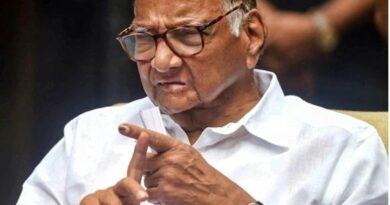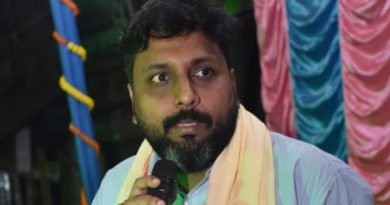Debate: Inclusion, Not Epistocracy, Is What Will Make India a Stronger Democracy
In her recent article for The Wire, Avani Bansal suggests that Indian democracy could benefit from incorporating elements of epistocracy – “a government run by those who have knowledge or are experts in some way.” One particular aspect of epistocracy that Bansal leans towards is the addition of basic educational qualifications through Article 84(c) of the constitution.
This debate is not novel, of course. A few years ago, Rajasthan and Haryana enacted educational qualifications for panchayat officials. These laws eventually made their way to the Supreme Court, where they were deemed constitutionally permissible. At the time, critics of these qualifications had emphasised their disparate impact: not all citizens possessed access to education, and uneven access to education was unequally distributed across different groups. Women were more likely to be excluded by educational qualifications for office. Dalit women even more so.
But the debate over educational qualifications for office has an even longer pedigree. It served as a contentious issue even in India’s constituent assembly, where K.T. Shah proposed an educational qualification for all parliamentarians. At that time, he was told that parliament was free to add such qualifications if it deemed them necessary; a constitutional provision to that effect was not appropriate.
Shah took this suggestion seriously. Just a few months after the constitution was enacted, he would go on to raise the issue of educational qualifications for legislators yet again, this time in the interim parliament. The move had, it is quite likely, more sympathisers than the records of the constituent assembly reveal. In his closing comments, Rajendra Prasad, the president of the Constituent Assembly had stated, “It is anomalous that we should insist upon high qualifications for those who administer or help in administering the law, but none for those who made it, except that they are elected.”
In the interim parliament, Shah’s proposed amendment to Article 84(c) had greater traction, inviting the support of several of his colleagues. P.S. Deshmukh, for instance, supported an educational qualification for legislators, arguing, “In our country, it seems, as it were, the average voter has one foot on the rocket and another foot on the donkey.” Yet again, after discussing his proposal, parliament rejected the adoption of educational qualifications for legislators. Contra Bansal, I think this was a wise choice, and an epistocratic restriction on legislative office would be a bad idea.
Epistocracy might appear tempting for its epistemic benefits – its ability to draw on relevant information to deliver better decisions than those that democratic institutions are capable of producing. This view, however, hides the epistemic benefits of democracy while underplaying the costs that epistocracy imposes on political institutions’ capacity to operate in an intelligent fashion. I outline two such costs here: the first concerns the exclusion of disadvantaged groups from decision-making; the second relates to the consequences of their stigmatisation.
In her book, Democratic Reason: Politics, Collective Intelligence, and the Rule of the Many, Helene Landemore draws on what is known as the ‘Diversity Trumps Ability Theorem’ to remind us that democracy is not just valuable because it’s fair. Rather, it is also valuable because it is a smarter system – it is more likely to ensure that decisions are made in ways that harness intelligence distributed across a society.
As Landemore reminds us, democracy is not just about individual expertise. A group comprising Plato’s philosopher-kings, Chicago economists or think-tank leaders is not likely to fare well at taking decisions that democratic governments are tasked with. Part of the reason they would not do well is that the collective intelligence of a group is not just an aggregate of its composite parts.
Rather, in order to perform well, to function as a ‘smart’ unit, the decision-making group should be able to pool diverse perspectives. Such diversity is particularly useful in cancelling out blindspots to which experts, no less than laypersons, are constantly susceptible.
We are all vulnerable to blindspots of various kinds. Our caste background, gender, class position, all contribute to shaping our perspective on the social world. They influence which problems matter for us and how we respond to them. In this context, a diversity of social backgrounds and perspectives is not good merely because it advances the ideal of political equality: it’s also critical for developing a more holistic picture of our social world, more capable of responding to shared political problems.
Political inclusiveness also matters for a further related reason. Categories like ‘expert’ or ‘layperson’, ‘competent’ and ‘incompetent’, are inevitably imperfect. They are unable to capture the full range of information that a given individual might possess in relation to some decision. The very point of categories, after all, is to simplify a complex landscape, offering labels that lump things together, sharply separating them. However, categories also have an unintentional outcome: while attempting to describe the social world, they can also end up shaping our response to it.
So, labelling some group of people as ‘incompetent’ on the basis of some (imperfectly designed) categorisation criteria can also lead us to see them as incompetent. In turn, our interactions with that group would be underpinned by the view that they are incompetent. In the context of epistocracy, the fact that already marginalised groups are disadvantaged on traditional parameters of assessing competence makes this feature of categorisations particularly worrying. For not only would disadvantaged groups be excluded from decision-making, but they also risk being stigmatised as incompetent—as having little to offer to political decision-making.
Of course, such stigmatisation is also of independent moral concern: that many of our fellow citizens would come to bear the mark of not being fit for a share in political decision-making is bad enough as it is. But we can say more. We can also add that the consequences of such devaluation are a problem for the epistocrat. Insofar as sections of the population are disproportionately affected by categorisations of competence, their devaluation would also bear epistemic costs. It would hinder their ability to contribute meaningfully to deliberation over policy even when they have compelling insights to offer.
Bansal suggests that experts should have had a far greater say in the government’s response to the coronavirus pandemic. Few would disagree with the idea that the government should consult, and take seriously, experts’ advice on dealing with a health emergency. There are, though, two caveats to this point.
First, expertise, has a crucial role to play in democratic decision-making. This is very different, though, from an epistocracy where experts rule rather than play a part in supporting representative institutions. Some of the problems that Bansal describes in the government’s response to the pandemic – such as its approach to the National Disaster Management Authority – are best described as a symptom of wider democratic decay in India. Decision-making by executive fiat has come to dominate the democratic process, leaving little room for consultation and discussion.
Thus, one can agree with Bansal’s position that we must “ensure that important Bills are not passed without comments from experts and stakeholders” and yet insist that such a move would facilitate democracy, rather than institutionalise an epistocracy.
Second, political judgments require more than mere technical expertise. Epidemiologists and medical experts can tell us the ways in which the virus is likely to spread. Economists can tell us the financial implications of different public health interventions. However, these sets of expertise cannot by themselves deliver a full judgment on how a government should respond to a pandemic.
Inevitably, there are value judgments involved in determining who should bear the brunt, how much risk to public health is acceptable, and what the trade-off with other dimensions of the population’s welfare ought to look like. These are precisely the kind of judgments where a diversity of backgrounds among decision-makers acquires salience.
Seen from this perspective, the faults with India’s response that Bansal attributes to the lack of expertise, could very well be described as failures of inclusion. They reveal a failure to include the perspectives of workers in the informal sectors, migrants, and the poor. Indeed, the Indian parliament is severely under-represented when it comes to members of such groups. Thus, questions have rightly been asked about the government’s insufficient concern for the level of preparedness for a lockdown among economically disadvantaged citizens, and the inadequacy of remedial measures proposed to mitigate hardship.
In sum, the problem is not that the government has been unduly insensitive to the perspective of medical experts. Rather, the problem is that democratic institutions currently lack the capacity to engage in dialogue with experts and ordinary citizens, especially those who must bear the brunt in these times.
A government which lacks such basic prerequisites of democratic governance can only tenuously be described as democratic. In any case, it would stand as a particularly bad lens through which to compare democracy and epistocracy. Proponents of epistocracy deserve a better adversary in their attempt to demonstrate why their preferred political arrangements would surpass democratic institutions. Modi’s India is not a fair way to conduct that comparison.
Udit Bhatia is Junior Research Fellow, Jesus College and Lecturer in Politics, Lady Margaret Hall at the University of Oxford.




